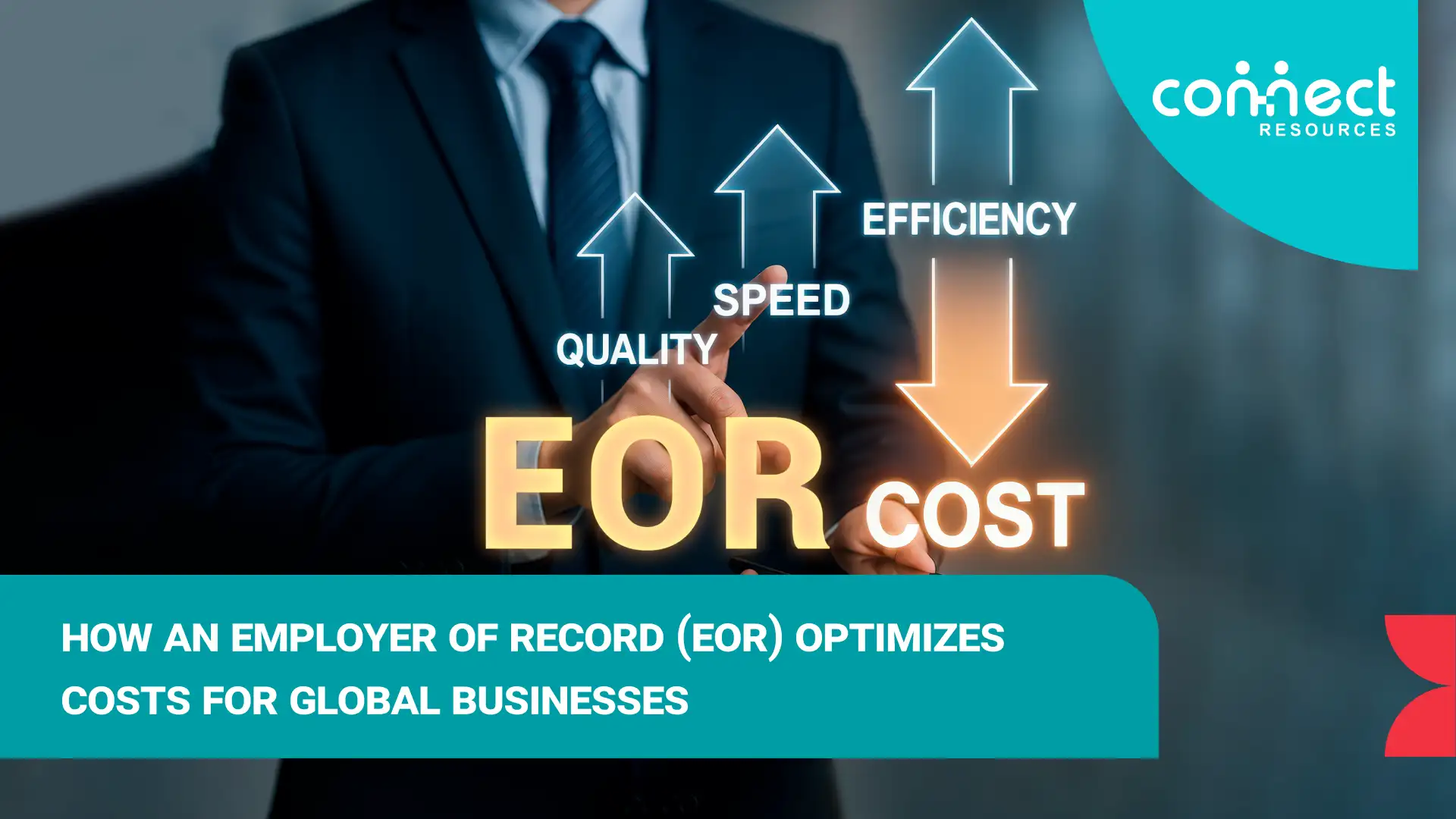It is important for all types of companies to count on a reliable work team to build a profitable business. Therefore, many of them tend to invest a significant amount of money in different strategies to keep their employees happy. And one of them is Employee Compensation, which is something you should know about if you are a business owner.
In this article, you will learn everything you must know about this element that is vital for your workers. For example, here we will give you a detailed explanation about Employee Compensation definition, types, benefits, and many other factors. And this way, you will be able to create the most effective compensation strategies to benefit your employees and company. Let’s observe:
- What things should you know about Employee Compensation strategies?
- How many types of Employee Compensation can you find?
- What facts should you know about base pay?
- Steps you should follow in order to determine Employee Compensation accurately
- How to determine the most convenient Employee Compensation package for your company?
- What do the United Arab Emirates Compensation Laws stipulate?
- How can Connect Resources help you improve your Employee Compensation strategies?
1. What things should you know about Employee Compensation strategies?
One of the best strategies that a company can implement to attract new potential employees is by offering Employee Compensation. However, this is useful for both attracting new workers and keeping motivated the ones that are already working for the company. And if your workers are happy and motivated, you will be able to build an efficient and solid team.
But before developing an effective strategy related to this matter, it is important to understand the definition of compensation. In short, Employee Compensation is a package that includes the minimum wage that the employees receive from their employers. But it also includes many other elements that are favorable for the employees, such as overtime pay, bonuses, and benefits.
And besides those elements, this package can also contain stock options, health insurance, fringe benefits, profit-sharing, paid time off, etc. However, there is another definition for this compensation concept since it may involve recompense for some particular cases or scenarios. For example, in case an employee gets an injury in the workplace or gets laid off for no valid reasons.
Therefore, this type of package should also include lawsuit-related requital, indemnification, and payouts for certain cases like wrongful contract termination. But it is also important to know that Employee Compensation does not only include monetary benefits. Some other benefits that employees can enjoy are gym memberships, courses, and other similar perks.
2. How many types of Employee Compensation can you find?
Employers can provide their employees with different types of Employee Compensation, but it will depend on several factors. Therefore, you must be aware of them, which can be direct, indirect, and also non-monetary compensation. Now, we will briefly explain the definition of each of these types of compensation for employees and what they contain.
2.1. Direct compensation for employees
When it comes to this type of compensation, it is always money that goes directly to the employees. And there are four main elements that are taken into account as direct compensation or remuneration. Those elements are the base salary, hourly wages, commissions, and also bonuses. But in order to provide those to your employees, you must have a clear concept of each of these factors.
2.1.1. Base salary and hourly wages for employees
Usually, the salary and the hourly wage of an employee are fixed, and both elements together are known as base pay. In most countries, employees who work in any company or business get a minimum wage for their hard work. And the amount of money varies depending on the country. As for the payment frequency, the employer decides whether to pay out their employees weekly, biweekly, or monthly.
2.1.2. Commissions and bonuses
On the other hand, commissions and bonuses together are known as variable pay because they can vary. But that will depend on many factors, such as the type of work that the employee performs, and other elements. For instance, if your employee is a salesperson, he/she may get a certain commission based on his/her successful sales.
Apart from that, there are some employers who often provide their employees with performance bonuses at the end of the year. Nonetheless, only the highest-performing workers will be the ones who will receive this type of bonus. Therefore, this type of Employee Compensation can make a significant improvement in motivating your employees to do their best.
2.2. Indirect compensation for employees
Besides a direct compensation method that includes base salary, bonuses, and other elements, there is also an indirect compensation method. As you may know, the difference between this and the previous method is that this one is not given directly to the employee.
2.3. Non-monetary compensation for employees
Apart from monetary perks, employees can also get other types of benefits when their employers want to motivate them. And some of those non-monetary types of compensation can be vouchers, tuition assistance, travel allowances, and many other benefits.
Even though these are not related to money, they are special awards that workers can get for their significant contributions. And in some cases, employers can offer particular assistance programs to their employees that consist of counseling or legal advice.
3. What facts should you know about base pay?
The first thing that you should know about base pay is that it is a type of direct Employee Compensation. And, at the same time, it can be divided into two elements, which are the hourly wage and base salary. Besides, base pay is usually the first thing that candidates want to know when considering taking a job.
However, it is important to differentiate the hourly wage and the monthly salary of an employee. And also, all employers should have a clear concept when it comes to base salary and total compensation. Therefore, we shall take a look at the differences between these factors related to the compensation of your employees.
3.1. Monthly salary and hourly wage
Usually, those workers who have a temporary job or have a part-time contract are the ones who receive hourly wage-based compensation. And unlike these employees, those workers who have a full-time contract with a company are most likely to get a monthly salary. So, taking into account those elements and many others, an employee can get any of these types of compensation.
Nonetheless, it is also important to consider other factors, such as the size of the company. If the company is small, it is possible that it will not need full-time employees on its staff. And if the business is practically new, it may have limited financial resources. Therefore, it probably will not be able to afford to have full-time employees but workers with an hourly wage.
3.2. Base salary and total compensation
As for these elements, it is vital to let your employees know them during the employee onboarding process. In the case of base salary, it consists of the minimum amount of money that your employees will receive. And you must know that they will receive it whether they have a salary-based contract or an hourly wage.
Plus, it is also important to keep in mind that the base salary will not cover certain things. For instance, it will not cover the overtime working hours that an employee has spent. In fact, that detail will be covered by the total compensation, which can also include an end-of-the-year bonus. In other words, the total compensation consists of the benefits that employees can receive from their employers.
4. Steps you should follow in order to determine Employee Compensation accurately
In some cases, planning the right Employee Compensation for your workers may not be an easy task for you. Therefore, you should follow certain guidelines in order to carry out this task successfully and get a satisfying outcome for everyone. And those guidelines that you should take into consideration are the following ones:
4.1. Do the necessary research
You need to be aware of the salary and benefits that your employees expect, just as the ones they had in their previous jobs. Besides, you must also research salary ranges for similar jobs and be competitive enough. This way, you can attract more candidates and retain your employees as well.
4.2. Make sure to budget properly
Although you need to be competitive, you also must make sure to stay within your available budget. In other words, it is vital to balance your company’s finances and the desire of providing competitive employee benefits. Otherwise, either your company or your employees will not get a satisfying outcome or results.
4.3. Consider merit-based benefits
Other things that must take into account are your employees’ efforts and skills to create a perfect Employee Compensation strategy. For example, if an employee stands out for putting in more effort and getting better results, he/she should get a reward. An additional pay or pay raises can be considered good rewards.
4.4. Stay compliant with the law
And lastly, you must always stay compliant with the national and local law when it comes to HR processes. Plus, you should know that the law may vary depending on the emirate or city where your company is located. The best advice is to get professional HR consultancy related to the legal aspect of Employee Compensation strategies.
5. How to determine the most convenient Employee Compensation package for your company?
As you may know now, determining these packages will involve not only your employees but also your company’s finances. Therefore, it is important to consider your budget and the way it will affect your business. Following the guidelines and getting help from a professional will allow you to determine the most favorable package for your business.
6. What do the United Arab Emirates Compensation Laws stipulate?
In the UAE, there is not a national minimum wage for expatriates. However, UAE nationals are known for having particular salary requirements based on their education level. For example, if a UAE national does not have a high school certificate, they cannot earn less than AED 3,000 monthly.
Another factor that you must consider is compensation for overtime. If you have an employee working on Fridays (a statutory day off), they receive an increase of 50% in pay or another day off.
7. How can Connect Resources help you improve your Employee Compensation strategies?
Getting the information that you need about the types of Employee Compensation is the first step to improving your strategies. And Connect Resources can help you find the exact information you require to start building your compensation strategies for employees. However, our team can also help you get many useful services to get the most effective solutions for this affair.
For example, you can request EOR and PEO services that will help you manage several HR processes like Employee Compensation. By getting any of these services, you can focus on your core activities while we handle your HR tasks efficiently. As a result, your business will get significant improvements and your employees will be motivated to keep doing their best.
Would you like to contact our Connect Resources team to obtain more information related to the types of Employee Compensation in the UAE? Then, in case you have any questions, please feel free to call us on +971 433 16 688. However, emailing us at contact@connectresources.ae is another good option. And right after that, you will talk to one of our representatives who will gladly answer all of your questions.
Apart from that, if you are searching for the most convenient job opportunities, make sure to visit thetalentpoint.com website. Then, all you need to do there is to submit your CV or resume to search for your dream job easily. Besides, you can also feel free to send an email at contact@thetalentpoint.com, so we can receive your application and review it.









